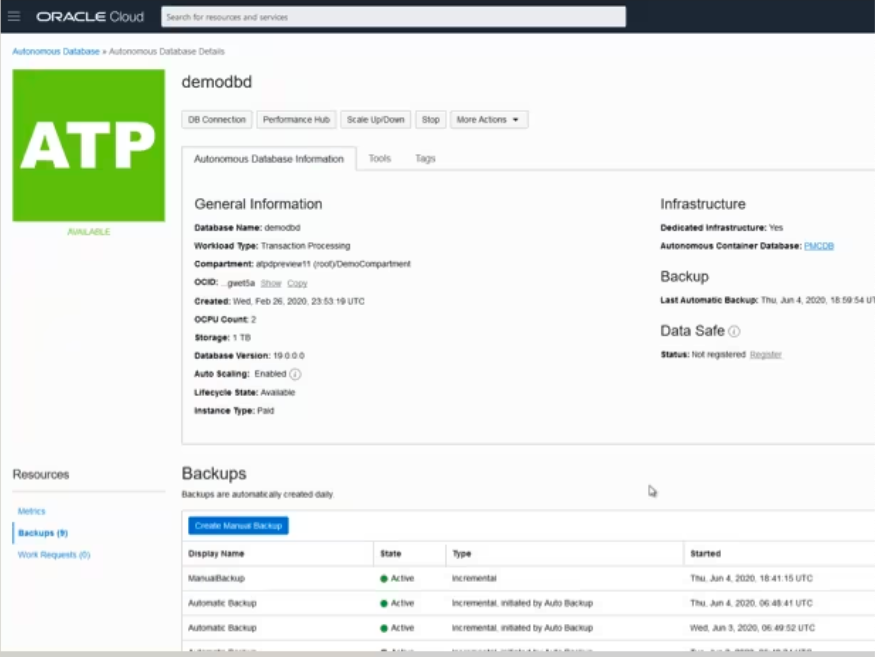Trick Features to Seek When Selecting a Data Source Service Provider
Selecting a database company is an essential decision that can considerably influence your company's data and operations management technique. Among the vital attributes to take into consideration are scalability alternatives, which ensure that your system can adapt to growing needs.
Scalability Options
When selecting a data source provider, understanding scalability options is essential to making certain that the chosen solution can accommodate future growth. Scalability describes the capacity of a data source system to increase its capacity and efficiency in action to increased demand. There are two key types of scalability: straight and upright.
Upright scalability, or "scaling up," entails improving a solitary server's resources, such as CPU, RAM, or storage space. This approach can be cost-efficient and straightforward for smaller applications but may get to a limit where even more upgrades are too pricey or impractical.
Straight scalability, or "scaling out," involves including much more servers to distribute the tons. This method permits higher flexibility and can suit substantial increases in information volume and user web traffic (database provider). It is especially helpful for cloud-based database remedies that can dynamically designate resources based on need
/B2B%20data%20providers/EN_graphic-data-provider-Cognism.webp?width=650&height=414&name=EN_graphic-data-provider-Cognism.webp)
Safety And Security Measures

When assessing safety and security steps, consider the implementation of encryption methods (database provider). Data-at-rest and data-in-transit security are crucial to make certain that delicate info stays protected, even in case of a protection violation. Furthermore, search for service providers that offer solid verification systems, such as multi-factor authentication (MFA), to better boost gain access to control
Routine security audits and conformity with market standards, such as GDPR or HIPAA, are a measure of a service provider's dedication to information protection. In addition, ask about their incident feedback strategy; a robust strategy can lessen the impact of any kind of prospective security case.
Efficiency Metrics
Evaluating efficiency metrics is vital for organizations to make sure that their chosen data source supplier satisfies functional demands. Key efficiency metrics include action throughput, scalability, and time, which collectively establish the efficiency of data source operations under varying lots.
Reaction time is essential, as it reflects just how quickly the database can refine queries and return outcomes. Organizations should try to find metrics that show typical feedback times during height and off-peak hours. Throughput, frequently determined in purchases per second (TPS), offers understanding into the data source's ability to manage high quantities of requests without performance degradation.
Scalability examines the database's capacity to grow with the company's requirements. A robust data source supplier should show straight and upright scaling abilities, allowing for seamless changes as demands vary. Additionally, comprehending latency, especially in distributed systems, can assist companies examine the responsiveness of the data source throughout various geographical areas.
Client Support
Reputable client support is a cornerstone of effective data source monitoring, supplying organizations with the support needed to enhance and fix issues performance. When picking a data source copyright, examining the level of customer assistance they use is necessary. A robust support system need to include multiple networks of communication, such as phone, e-mail, and live conversation, guaranteeing that users can access aid whenever they need it.
In addition, receptive support groups that are available 24/7 greatly improve the reliability of the data source service. Prompt action times and effective resolution of concerns can substantially reduce downtime blog here and increase overall performance. It is likewise advantageous to think about the availability of committed support employees, who can use tailored help based upon an organization's details needs.

Prices Structure
When taking into consideration a database provider, the rates structure is a crucial element that useful site can significantly influence an organization's spending plan and general approach. A transparent and flexible prices model is necessary for aligning the data source costs with organization demands - database provider. Organizations ought to review whether the prices is based upon consumption, per customer, or a flat price, as each design can yield various monetary effects in time
It is essential to evaluate any added costs connected with the company's solutions, such as data storage space fees, deal prices, and support fees. Some companies might provide tiered prices, allowing scalability as the organization expands, while others might impose stringent limits that might come to be costly as data demands increase.
Additionally, companies need to think about the lasting value of the database service. While reduced preliminary prices can be appealing, they may not represent future upgrades, upkeep charges, or assimilation prices. Carrying out a detailed cost-benefit analysis will certainly aid identify the most suitable pricing structure that balances support, scalability, and performance, eventually guaranteeing that the selected database service provider lines up with the organization's functional and monetary goals.
Conclusion
Finally, picking a data source supplier requires careful factor to consider of numerous important functions. Scalability options ensure flexibility to future growth, while robust protection procedures protect sensitive details. Examining performance metrics makes it possible for the identification of efficient data sources, and easily accessible customer assistance enhances the total individual experience. A transparent prices structure better contributes to educated decision-making. By completely assessing these variables, organizations can make critical options that see here now align with their long-lasting objectives and functional demands.
Picking a data source company is a critical decision that can dramatically impact your organization's procedures and information administration approach.When selecting a database supplier, recognizing scalability options is important to making certain that the picked solution can fit future growth. When choosing a data source copyright, evaluating the level of client support they supply is essential.When thinking about a database company, the rates framework is a pivotal factor that can considerably affect an organization's budget plan and general technique. Carrying out a complete cost-benefit evaluation will certainly assist determine the most appropriate prices structure that balances assistance, efficiency, and scalability, ultimately ensuring that the selected data source supplier lines up with the organization's functional and monetary goals.